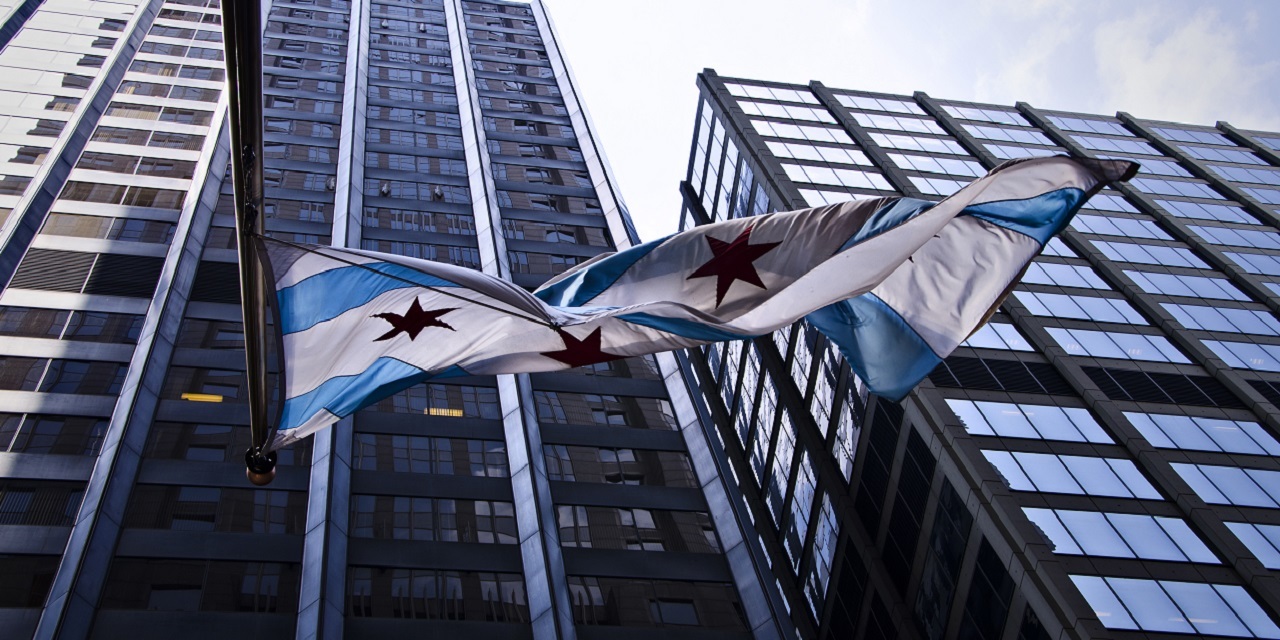A Minneapolis-based tech firm which provides interactive video advertising to be displayed in Uber and Lyft vehicles has sued the city of Chicago, saying the city’s rules forbidding the ride-hailing services from displaying advertising on or in their vehicles, while allowing traditional taxis to do so, unconstitutionally favors the taxis at the expense of the other drivers.
On Feb. 2, Vugo Inc. filed its complaint in Chicago federal court against the city, alleging City Hall’s regulations violate Vugo’s rights under the U.S. Constitution’s First and Fourteenth amendments.
Vugo and its lawyers, with the Chicago-based Liberty Justice Center, announced the lawsuit at a press event Tuesday in Chicago.
In a release, Vugo’s attorney, Jeffrey Schwab, said the ban on advertising in the vehicles operated through the ride-hailing services amounts to the city improperly “picking winners and losers in the economy.”
“We founded Vugo because we believed there was a genuine opportunity for ridesharing drivers to enhance their customers’ ridesharing experience. Vugo allows ridesharing drivers to provide riders with tailored media, restaurant recommendations and information about local experiences,” said Rob Flessner, CEO and co-founder of Vugo, in a prepared statement. “Ridesharing drivers are best equipped to determine the preferences of their riders, not the city of Chicago.”
The lawsuit centers on regulations imposed by the city in 2014 in what is commonly known as the city’s ridesharing ordinance, which governs how services like Uber and Lyft can operate in Chicago.
Under those rules, the ride-hailing service vehicles are barred from displaying any commercial advertising on and inside their vehicles. Violators could be subject to fines of $500 to $1,000 per violation.
However, city rules do not similarly prohibit such advertising from being displayed on the exterior or interior of traditional licensed cabs operating in the city. Taxi operators may apply for permits to display advertising either inside or outside their vehicles, resulting in many taxis essentially serving as rolling billboards on city streets and generating additional revenue for taxi operators.
Likewise, the lawsuit noted the city does not prohibit other passenger vehicles from displaying advertising, reserving the restrictions solely for ride-hailing service cars.
In other cities, including Los Angeles, San Francisco and Minneapolis, Vugo said it contracts with Uber and Lyft drivers to advertise to passengers, typically generating an additional $100 per month in income for the drivers.
Under Vugo’s service, drivers download an app onto tablet computers and create an account. The app then generates interactive advertising, which can be tailored to customers based on certain data, including “trip signals” and “city, state, route, pick-up point for the trip, business category, specific keywords, and the passenger’s destination.”
The ads are displayed on the tablet, facing passengers, “only when a rideshare driver has a passenger.”
The passengers can then choose to interact with the ads on the tablet’s touch screen.
Vugo said it is paid by the advertisers, and then pays a percentage of revenue to drivers using its services.
Vugo indicated it would like to expand its services to the Chicago market, but the city’s rules effectively block it from the marketplace.
“Because of the ordinance, Vugo is completely unable to operate its platform in Chicago - and Chicago rideshare drivers are completely unable to display advertising provided by Vugo - even as the city explicitly authorizes taxicabs to display advertising and does not prohibit other passenger vehicles from doing so,” the lawsuit said.
